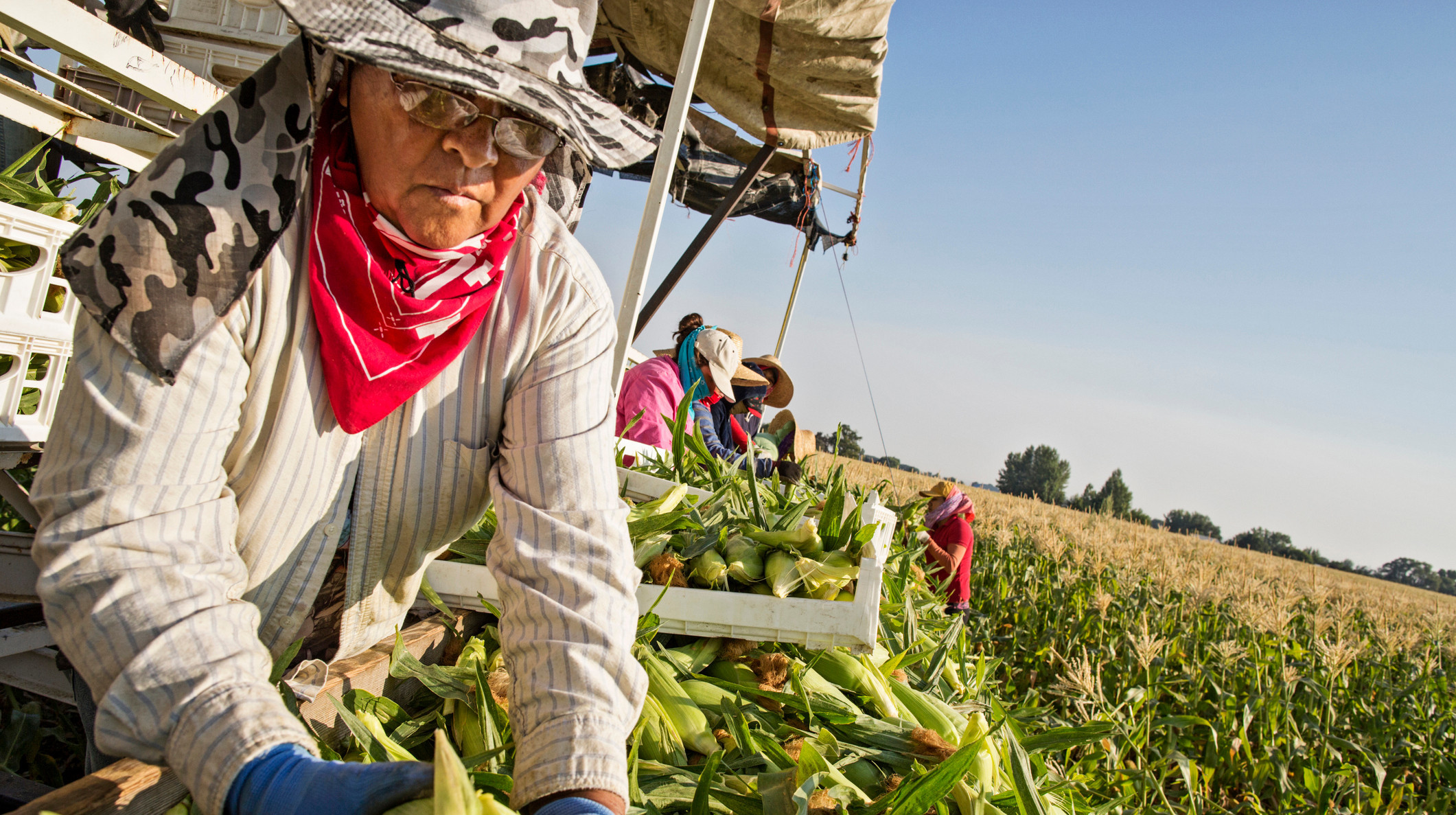Food System Workers May Get Earlier Access To A COVID-19 Vaccine
As you know, people working in the food system—farmworkers, grocery store employees, restaurant cooks and servers, people on the line in meatpacking plants—are considered essential workers. Because of that, it's likely that they'll get earlier access to a COVID-19 vaccine when it's released. But it's not as simple as assembling everyone in a workplace and lining them up for their shots; there will be a lot of hurdles involved, and not just logistics.
The Food & Environment Reporting Network examines some of those challenges a vaccine rollout might bring: language barriers and lack of trust on the part of workers. Workers are worried about a lack of information regarding the vaccine's safety or side effects—and rightfully so. Farmworkers, in particular, are concerned, because of the risks and conditions they've been braving for months already.
Edgar Franks, political director at the farmworker union Familias Unidas por la Justicia, says, "If it wasn't clear already, it is now, that these workers feel that they're expendable and that they're just being used for their labor."
Once a vaccination plan has been laid out, most states plan on rolling out the vaccine to agriculture and food processing workers in either the first or second phase, after healthcare workers. This includes meatpacking states like Arkansas, Nebraska, and North Carolina, along with states that have been hardest hit with COVID-19, like Indiana, California, and Colorado.
These state vaccination plans are partly based off information issued in a report from October by National Academies of Sciences, Engineering, and Medicine.
"There are many reasons why food system workers are at increased risk of infection and disease, including prolonged close workplace contact with coworkers, frequent community contact with fellow workers, mobility of the workforce (i.e., migrant workers), shared transportation to and from the workplace, lack of paid sick leave, and congregate housing situations," the report says.
Read the rest of the story here, and take a minute to appreciate the labor it takes to get that food on your table.
